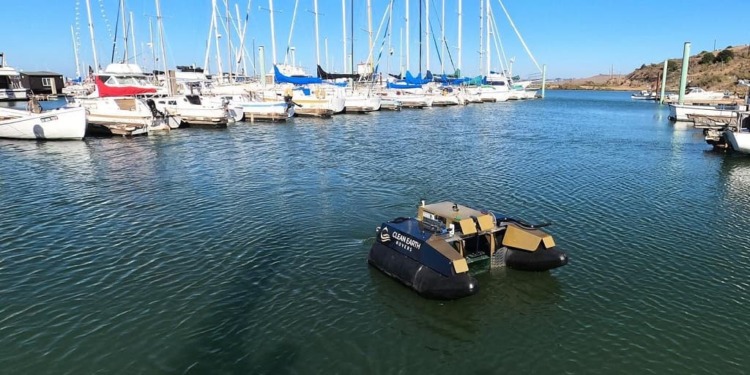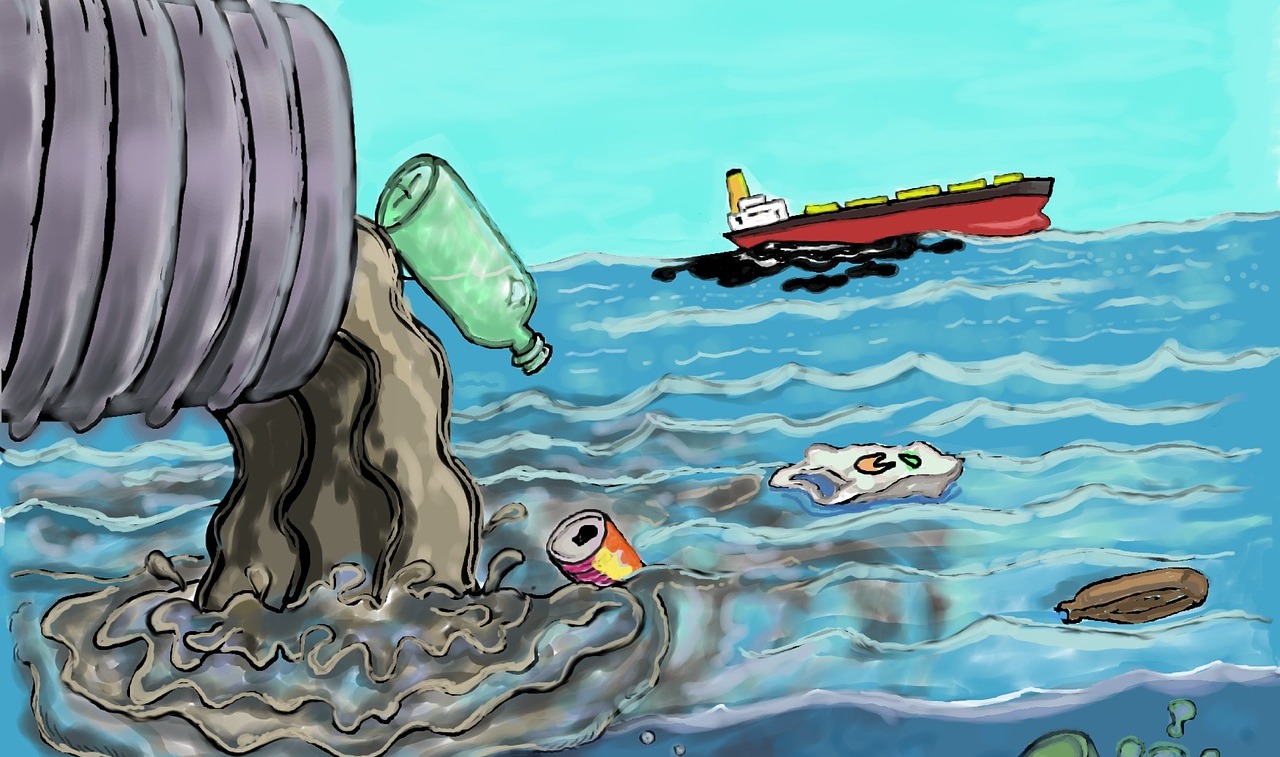Last week, Clean Earth Rovers a startup working to remove plastics pollution and debris from waterways launched its Piranha water vehicle in Richmond, California. At Point San Pablo Harbor, the Piranha collected over 45kg (100 pounds) of plastics and other debris from the marina.
Clean Earth Rovers is supported by the University of Cincinnati’s Venture Lab Accelerator. Venture Lab helps founders first understand the potential of their project in an 8-week pre-accelerator program. It then offers access to grants and funding to the startups with the greatest potential.
The water vehicle measures only 1.5 meters x 1.5 meters (5 feet) and floats on two pontoons. Two thrusters propel it. It could operate both autonomously or be controlled directly. Under the Piranha, there is a large bag that collects debris and plastics from the water and below its surface – 12cm (5 inches) deep.
According to the latest data, there are more than 14 million tonnes of pollution coming into the ocean every year. 70% to 80% of marine plastic enters the ocean from land via rivers or coastlines.
RELATED ARTICLES: Finding the Unexpected in Expectant Women: Microplastics Discovered in Human Breast Milk | Will We Ever Solve the Plastics Problem? | Working Towards a Cleaner Ocean: An Interview with Fabienne McLellan from OceanCare | 4 Ways to Reduce Plastic Pollution | New UN Treaty Focused on Plastic Pollution | The Pacific Paradise Plagued by Plastic |
The idea behind Clean Earth Rovers’ Piranha is to collect plastic pollution and other debris from waterways and marinas before they could get into the open Oceans.
The Piranha is more than just another vehicle “eating” plastics and other debris. It is also able to track metrics from the water such as dissolved oxygen, oxygen, temperature, PH, and much more. It is also the first vehicle of this kind built in the US.
Clean Earth Rovers has so far raised over $ 250,000. Their latest round was in July. This startup has great impact potential. If deployed in every marina, Clean Earth Rovers’ Piranha could be a very cost-effective solution to prevent pollution from getting into the oceans.
While The Ocean Clean Up is the most famous organization working on the issue of plastics in the oceans, it looks like there is a gap in the market for startups working on similar projects trying to fetch plastics and debris before they get into open water. Will they find the support they need?
Editor’s Note: The opinions expressed here by Impakter.com columnists are their own, not those of Impakter.com –In the Featured Photo: Clean Earth Rovers Piranha deployed to collect plastics. Photo credit: Clean Earth Rovers.











